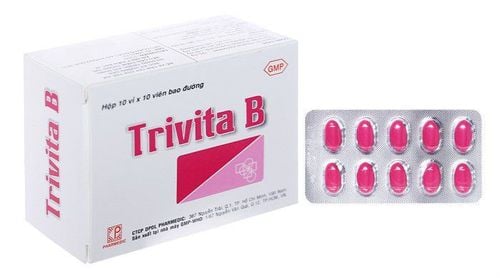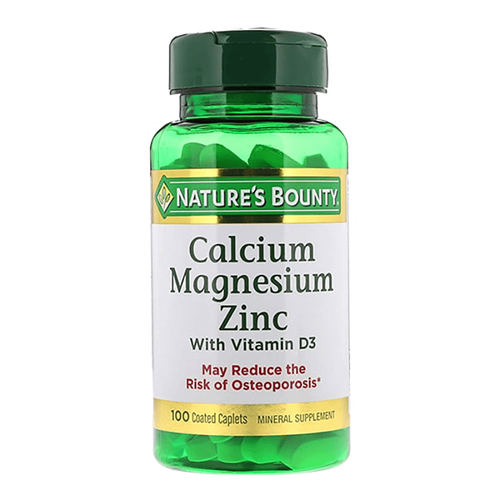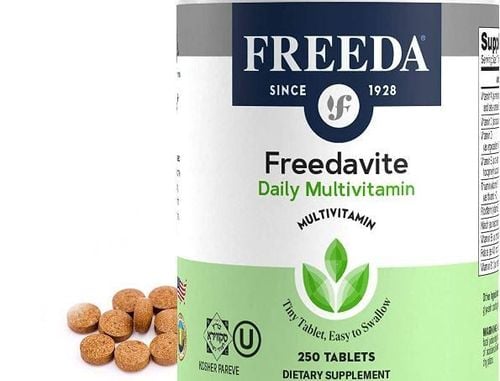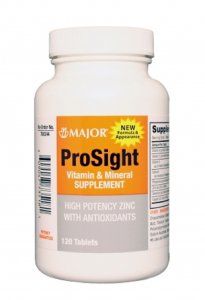This is an automatically translated article.
Vitamins and minerals are essential for children's development. Children's vitamin and mineral requirements vary according to age, sex, weight, activity level, and growth rate. Vitamin and mineral supplements given to children in the form of food and medication should be carefully monitored and evaluated.
1. The role of vitamins and minerals
Vitamins and minerals are micronutrients that are essential for the development of young children. These micronutrients cannot be synthesized by the body and must be obtained from food.
Vitamins and minerals have many important roles such as:
Needed for growth and strong bones Regulate metabolic processes Maintain efficient functioning of organs, such as the heart, Digestive, kidney Acts as a catalyst for reactions in the body Coordinates with other substances to perform body functions Maintains homeostasis in the body The need for levels of vitamins and minerals Nutrients for children are very small, so it is only necessary to provide adequate and balanced through daily meals. Adding large amounts of vitamins and minerals to children can cause imbalances and interfere with the absorption of nutrients. On the contrary, children with micronutrient deficiency will have consequences such as:
Increased risk of bacterial infections: pneumonia, otitis media, intestinal infections Digestive disorders such as nausea, heartburn , constipation. Poor absorption of nutrients Depression, anxiety Slow growth in height due to underdeveloped bones Muscle aches, bones and joints Vitamin A deficiency: causes eye diseases, reduces resistance Vitamin B1 deficiency: causes edema, memory loss, neuritis, heart failure Vitamin C deficiency: easily causes bleeding under the skin and mucous membranes, reduces collagen synthesis, reduces resistance Vitamin K deficiency: increases the risk of bleeding, especially cerebral blood, meninges Deficiency of calcium and vitamin D: leading to rickets, short stature Iron deficiency leads to anemia, retardation of physical and mental development Zinc deficiency: susceptible to skin diseases, impaired growth, increased risk of diarrhea and increased susceptibility to infection. Iodine deficiency: goiter, growth retardation, mental retardation Fluoride deficiency: susceptibility to dental disease

Bổ sung vitamin và khoáng chất cho trẻ giúp cho xương chắc khỏe
2. Supplementing children with vitamins and minerals
Vitamin and mineral requirements for children vary according to age, sex, weight, activity level and growth rate. It is very important to properly supplement vitamins and minerals for children. In general, if the daily diet ensures adequate and balanced 4 groups of important nutrients (protein, carbohydrates, fats, vitamins and minerals), then there is no need to take additional vitamin and mineral supplements. substances for children. According to the recommendations of the American Academy of Pediatrics, parents should not supplement vitamins and minerals for children older than 1 year of age in excess of the daily requirements if the nutrition is balanced. Instead, add green vegetables, fruits, whole grains, lean meats, healthy fats, milk and dairy products into meals and snacks to supplement the variety. vitamins and minerals for children.
The specific vitamin and mineral supplements for children are as follows:
Vitamin A is contained in foods such as liver, eggs, milk, green or yellow vegetables and fruits (lettuce, carrots). , tomato, pumpkin, ...). Vitamin A of animal origin mainly exists in the form of retinol alcohol, while vitamin A of vegetable origin exists in 3 forms: Alpha, Beta and Gamma carotene. Vitamin B is found in meat, fish, eggs, rice bran, whole grains, mushrooms, broccoli, avocado, cheese, yogurt Vitamin C is found in oranges, lemons, tangerines, guava, tomatoes, broccoli, vegetable. Vitamin D is abundant in cereals, yogurt, fish, eggs, fish oil, ... or synthesized by the body when exposed to sunlight. Vitamin E is found in almonds, chestnuts, spinach, collard greens,... Vitamin K is found in eggs, asparagus, parsley, celery, broccoli, cucumbers, olive oil, and dried fruits. Iron is obtained from meat, fish, liver, eggs, avocado, potatoes, broccoli, soybeans, spinach and dark green vegetables. Newborns from birth already have an abundant reserve of iron, enough for the baby's needs in the first 4-6 months of life. For premature babies, their growth rate can deplete iron stores in as little as two to three months. Babies 7-12 months old need 11 mg of elemental iron per day. Children from 1 to 3 years old, the dose is reduced to 7 mg of elemental iron per day. Calcium is provided from foods such as crab, shrimp, fish, snails, soybeans, wood ear, sesame, spinach, milk and dairy products. During the first year of life, breast milk and formula usually provide enough calcium for babies. When switching to whole cow's milk, children need to be provided with 500 mg of calcium per day. Zinc is found in foods such as beef, chicken, fish, eggs, whole milk, and cheese. So if your baby is getting enough iron, there's a good chance he or she will also get enough zinc. Each 250 grams of yogurt contains 1.6 mg of zinc, each 50 grams of pork loin contains about 2 mg of zinc and half a chicken breast contains 1 mg of zinc. Formula meets a baby's zinc needs, but breast milk does not. Therefore, it is important to supplement zinc for children. Children 7 months to 3 years old need 3 mg of zinc per day.

Bổ sung vitamin và khoáng chất cho trẻ cụ thể là vitamin A qua thực phẩm
3. Notes when giving children vitamins and minerals
There are some notes for parents when supplementing vitamins and minerals for children:
Vitamin and mineral supplements for children are only used when indicated. Supplements should be given in liquid form, such as an oral solution, for easy absorption. Using vitamin and mineral supplements for children is not meant to be a substitute for food. Children still need to eat a complete and balanced diet of nutrients. Do not arbitrarily give children supplements without consulting a doctor. Because of some substances such as Sulfamide, Methotrexate can interact with micronutrients to reduce absorption of B vitamins; excess zinc interferes with iron absorption; taking high doses of vitamin E will deplete vitamin A stores; Taking high doses of vitamin C will destroy vitamin B12; ... In addition, it is necessary to pay attention to signs of excess micronutrients.
Excess Vitamin A leads to increased intracranial pressure, headaches, vomiting a lot; affecting the development of bones can make children grow slowly, neurological dysfunction. Excess vitamin B6 can impair memory, reduce prolactin secretion, cause polyneuritis Taking high doses of vitamin C can cause peptic ulcers or diarrhea. High doses of parenteral vitamin C can cause hemolysis, especially in children with G6PD deficiency. Excess vitamin D can make children anorexia, fatigue, vomiting, thickened periosteum, sometimes children can be retarded, intellectually underdeveloped, even cause kidney failure and rapid death. Excess vitamin K is usually only seen with prolonged parenteral administration, causing hemolysis and jaundice. Excess calcium leads to fatigue, loss of appetite, kidney stones, early ossification can stop height growth. Too much iron can cause iron infection in the liver, iron in the heart leading to heart failure. Excess zinc makes children anorexia, vomiting, digestive disorders. Vitamins and minerals play a very important role in the overall health and development of children. A lack of vitamins and minerals can increase the risk of many diseases. Therefore, parents need to develop adequate nutrition for their children.
The building and supplementing of nutrition can take place for a long time, so it is recommended that parents be calm and persistent when supplementing with nutrients for their baby, even through eating or functional foods. In particular, the use of functional foods should choose those of natural origin that are easily absorbed, do not allow children to use many types at the same time or continuously change the types of functional foods.
In addition, parents also need to supplement their children with other important vitamins and minerals such as lysine, chromium, B vitamins,... errands.
For more nutritional knowledge and child care for each age, parents should regularly visit the website vimec.com and make an appointment with the leading doctors, pediatric and nutrition experts of the National General Hospital. Vinmec when needing advice on children's health.













